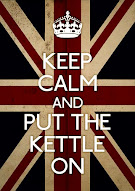 Stuart Evers
Stuart EversFriday August 28 2009
The Guardian
---
The summer of 1972 is a golden one for writers seeking a tumultuous background to their fiction. Kicking off with the breaking of the Watergate scandal, continuing through "Hanoi" Jane Fonda's tour of North Vietnam and ending with the massacre at the Munich Olympics, that summer is stuffed with so many huge international events that a humble game of chess seems rather a distraction. But this was the match between Boris Spassky and Bobby Fischer - and the whole of the cold war world was watching.
The central character in David Szalay's second novel, The Innocent, however, has to content himself with listening on the radio. A former hardliner and former member of the nascent KGB, Aleksandr sets up his battered and broken chess set and moves his little chess pieces according to the increasingly tired voice calling the action from Reykjavik. It's just four pages long, this scene, but Szalay imbues it with a stillness and a tension that is taut and increasingly expressive.
The broken board, the chessmen wrapped in a newspaper reporting a decade-old east v west crisis, the frown on Aleksandr's face as he fails to spot Fischer's error: all of these images, when taken together, perfectly articulate the internal combat waging in Aleksandr's head. His faith in the great experiment is failing, yet chess is there to remind him where his allegiance lies. The section ends with a simple, yet effective, conclusion: Aleksandr is looking at the board, staring at the "silent little pieces of wood whose significant positions are tonight transfixing the world."
 Even without the backdrop of political schisms and the spectre of mutually assured destruction, chess is a transfixing game in its own right - especially for writers. It has been the inspiration for countless novels, plays and pieces of short fiction, many of which are collected in a wonderful anthology called The 64-Square Looking Glass. What is it that makes chess such a consistently fascinating subject?
Even without the backdrop of political schisms and the spectre of mutually assured destruction, chess is a transfixing game in its own right - especially for writers. It has been the inspiration for countless novels, plays and pieces of short fiction, many of which are collected in a wonderful anthology called The 64-Square Looking Glass. What is it that makes chess such a consistently fascinating subject?
Chess, by its very nature, is a battle between two different thought processes; it gives the novelist the opportunity to go into the players' minds, while retaining an element of plot at the same time. This approach is brilliantly explored in Carl Haffner's Love of the Draw by Thomas Glavnic, a novel as strikingly good as its title. Here, 10 games of chess - which become ever more gripping as Haffner tries desperately to avoid losing - are the springboard to a familial history and an elegy for a disappearing Vienna. It's one of chess's finest novels, sitting comfortably alongside Nabokov's The Luzhin Defense and Paulo Maurensig's The Lüneburg Variation.
More abstractly, chess is attractive to writers as it mirrors the very act of writing itself. Planning ahead, tactics, manipulation are both part of fiction's palate as well as chess's. In both his fiction and his plays, Beckett used the imagery of the chess set, moving his characters around like lowly, articulate pawns. The conclusion of Murphy may be the finest expression of the game's intrinsic link to both art and humanity - "The ingenuity of despair" indeed.
 Taking Beckett to its postmodern conclusion, Martin Amis's Money featured a chess game between the central character, the plumply odious John Self, and the spitty, roll-up smoking "Martin Amis". It's an extraordinary scene and one that despite my general loathing of his style and subject matter, I must concede is brilliantly written, controlled and executed. It's the only time where I could see what the fuss was all about, especially at the game's close when "Amis" apologises, as much for creating him as for beating Self at the board.
Taking Beckett to its postmodern conclusion, Martin Amis's Money featured a chess game between the central character, the plumply odious John Self, and the spitty, roll-up smoking "Martin Amis". It's an extraordinary scene and one that despite my general loathing of his style and subject matter, I must concede is brilliantly written, controlled and executed. It's the only time where I could see what the fuss was all about, especially at the game's close when "Amis" apologises, as much for creating him as for beating Self at the board.
While Szalay's novel is far from the glitzy literary chicanery of Amis, The Innocent does, like Money, pivot around its respective chess scene. And while Self is playing his creator, Aleksandr is playing out other people's moves as well as his own personal demons. Neither are chess men, yet this is the game they play - for no other has the weight and heft to support such an important part of a novel.
---
guardian.co.uk Copyright (c) Guardian News and Media Limited. 2009




croppedsidebar.jpg)

.png)


















No comments:
Post a Comment